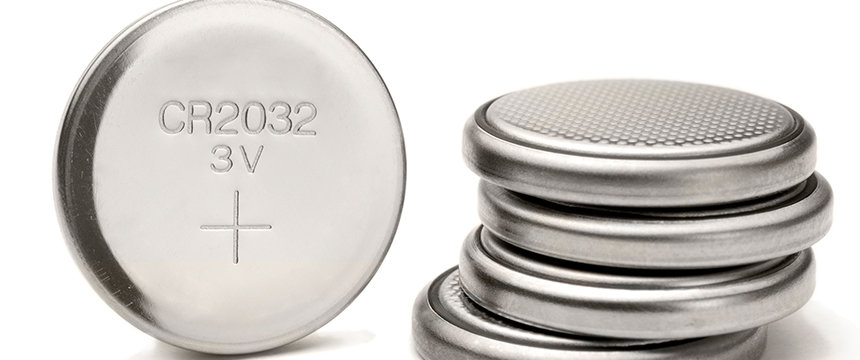
Lithium-ion (“Li-ion”) batteries are the energy source for many consumer products, including electric bicycles and scooters. While their use has become increasingly popular, Li-ion batteries have also reportedly caused hundreds of fires, severe injuries, and death. These incidents have resulted in regulatory changes in places like New York City, where in 2022 the New York City Fire Department responded to more than 200 e-scooter and e-bike fires, reportedly resulting in six deaths. Li-ion batteries are here to stay because of their energy capacity and performance, but federal, state, and local regulators are paying attention and taking action to keep consumers safe.
Li-ion Batteries: What Are They?
In part because of their compact nature, Li-ion batteries possess one of the highest energy densities among various battery technologies. These batteries are low maintenance, do not require scheduled cycling to maintain battery life, and are easier to dispose of than other batteries. They are used in some of the best-selling electric cars and several consumer products, such as wireless headphones, cell phones, laptops, tablets, cameras, hand-held gaming devices, hoverboards, e-cigarettes, electric bicycles, and more.
The Current Regulatory Landscape
The U.S. Department of Transportation
Li-ion batteries have long been designated as hazardous materials under the U.S. Department of Transportation’s (DOT) Hazardous Materials Regulations, and thus need to be handled according to the DOT’s requirements. UN DOT 38.3 requires testing before Li-ion batteries can be shipped into the United States and ensures the safety of Li-ion batteries during shipping. IEC 62619 affects the design of large-format Li-ion batteries and defers to other regulations, such as IEC 62133, for cell level standards.
The Consumer Product Safety Commission
In response to the increasing number of safety incidents purportedly linked to Li-ion batteries, on December 19, 2022, the Consumer Product Safety Commission (CPSC) sent a letter to more than 2,000 manufacturers, importers, distributors, and retailers of micro mobility devices for consumer use, urging them to ensure that their products are certified for compliance with applicable consensus safety standards. These standards included Underwriter Laboratories (UL) 2272, Systems for Personal E-Mobility Devices, and UL 2849, Standards for Safety for Electrical Systems for eBikes.
On May 19, 2023, CPSC Commissioner Mary Boyle released a statement on the need to evaluate safety requirements for e-bikes after the rise in e-bike fires in New York City and beyond. In her statement, she encouraged public comment on whether compliance with safety standards for batteries and electrical systems has provided adequate safeguards for e-bikes and e-scooters. Further, in October 2023, Commissioner Boyle addressed PeopleForBikes’ SHIFT’23 conference and announced that the CPSC plans to propose mandatory requirements for Li-ion batteries in micro mobility devices sometime in 2024.
New York State and New York City
As previewed above, New York State and New York City have been very active on addressing issues with Li-ion batteries. In March 2023, New York City Mayor Adams signed five bills into law after a series of fires were linked to Li-ion batteries. The bills aim to prevent fires, provide information to educate the public on fire risks, and set safety and manufacturing standards. Further, on March 20, 2023, the NYC Council passed 663-A, which prohibits the sale, lease, or rental of powered mobility devices, such as e-bikes and e-scooters, and the storage batteries for these devices, that do not meet UL 2849, 2272, and 2271. Also in March 2023, Representative Ritchie Torres and Senators Chuck Schumer and Kirsten Gillibrand introduced the Setting Consumer Standards for Lithium-Ion Batteries Act, which would require the CPSC to create safety standards for rechargeable Li-ion batteries used in devices such as e-scooters and e-bikes. The bill was referred to the Senate Committee on Commerce, Science, and Transportation and remains pending.
In June 2023, New York State Representative Jeffrey Dinowitz introduced a bill to ban the sale and manufacture of batteries that do not meet minimum safety standards. On June 29, 2023, Congressman Dan Goldman and others sent a letter to the CPSC requesting improved e-bike safety regulations, an update on the CPSC’s manufacturer out-reach plan, and next steps for enforcing compliance with safety guidelines.
State Senator Iwen Chu introduced four bills aimed at Li-ion batteries in New York City in November 2023. The first would require all New York e-bike and e-scooter shops to have fire suppression measures. The second would require all batteries be tested and approved by UL. The third would require all e-bikes and e-scooters sold in New York to have a red tag attached to the charging cord with directions to unplug in an emergency. The fourth would require retailers to provide a notice on e-bikes that they are not allowed on sidewalks and would authorize the New York Department of Motor Vehicles to issue corresponding regulations and fines for violations.
Most recently, in January 2024, New York Governor Kathy Hochul announced that she will propose a state-wide ban on the sale of uncertified Li-ion batteries. She announced additional training for local fire departments on Li-ion battery fires, expanded online public service safety announcements, and joined the New York City Council in calling on delivery companies to ensure that their contractors use safe devices.
The Future for Li-ion Batteries
While the current regulatory landscape for Li-ion batteries is muddled and confusing, mandatory federal, state, and local standards for Li-ion battery manufacturers are inevitable, and Li-ion battery regulations will be in flux for the next several months — if not years. While compliance with applicable standards is currently voluntary in most places, excepting New York City, the status quo is changing. As such, manufacturers and retailers of consumer products with Li-ion batteries must closely track developments and ensure compliance at all levels.
This article was written with the assistance of former summer associate Seap Bhardwaj.

